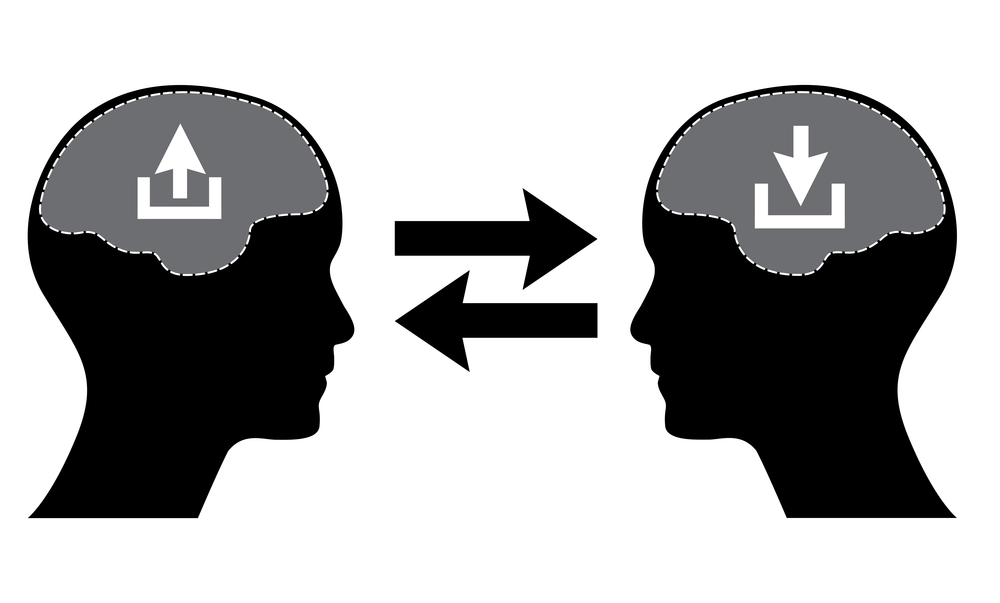
Despite the growth in psychosocial interventions for people with psychosis (specifically cognitive behavioural therapy and family interventions), antipsychotic medication remains the mainstay of treatment.
Antipsychotics can lead to reductions in positive psychotic symptoms (such as auditory hallucinations), are less helpful with “negative symptoms” such as lack of motivation and apathy, and come with a whole range of unpleasant, distressing and in some rare cases, life threatening side-effects.
Antipsychotic side-effects
The older “typical” antipsychotics (such as chlorpromazine) induce a Parkinson’s disease-like movement disorder which is highly distressing and visibly stigmatising. The newer “atypical” antipsychotics were hailed as marvel drugs that didn’t give movement disorders. However, what has emerged is that they are associated with significant weight gain and the epidemic of type 2 diabetes in people with psychotic illnesses. In addition, antipsychotics raise prolactin levels in the body that can cause sexual dysfunction. The benefits of taking antipsychotics must outweigh the negative aspects in order for someone to be motivated and engaged with continued use.

Research shows that side-effects are common with both the older typical antipsychotics and the newer atypical antipsychotics
The roots of collaborative practice
The idea of collaborative practice in prescribing psychiatric medication has been around for many years and developed with the emergence of “compliance therapy” in the 1990s (Kemp and David, 1996), which recognised the importance of dialogue around medication beliefs and choices, and attempted to see prescribing decisions and medicines management as a collaborative process between prescriber and service user. This was developed into a manualised intervention that mental health practitioners could be trained to deliver, known as Medication Management (Gray, 2004), which had shared decision-making at it’s core.
Indeed, the Recovery movement in mental health is driving the need for all mental health practitioners to work in collaboration, developing a shared understanding of the issues, and working together to solve problems. This approach sees the person with the mental health problem as the “expert by experience” working with a mental health clinician who is the “expert by profession”.
In psychiatry, medicine adherence is still seen as fundamental to effective risk management, and when people refuse or stop taking their antipsychotics, the mental health care team may become concerned about relapse of symptoms and the risk of harm to self or others. Therefore, non-adherence can lead to service users being coerced into taking medication, via the Mental Health Act 2007, if there is such a risk of harm.
Shared decision making in antipsychotic prescribing
This study aimed to explore the attitudes of psychiatrists towards decision making in prescribing, and use this increased understanding of current practice and the barriers that may exist to inform and improve future practice.

In shared decision making the aim should be to develop through dialogue, a mutually agreeable explanation of the problems experienced, and agreement on the way forward to help with these problems
Methods
This study chose a qualitative design to answer the question.
Sample
Psychiatrists were purposively sampled across an urban mental health service in the North of England. They attempted to obtain a group of participants that reflected a range of clinical backgrounds, and length of experience. The only particular inclusion criteria was that they were currently holding a post as a consultant psychiatrist (in working age mental health services).
Data collection
Individual interviews were conducted using a semi-structured schedule. This included clinical experience, factors influencing the choice of antipsychotics, involvement of the service user in decisions, role of other professionals in the decision and a request for an illustrative case example to reflect the principles.
Data analysis
Interviews were recorded and transcribed line by line, with sections of text highlighted as reflecting decision-making processes and involvement of service users. Text was coded according to their description of the process. Themes were identified according to the framework of Charles et al.
Results
- 27 participants responded and 1 refused to participate, leaving a total of 26 who completed the interviews
- Most participants felt that the decision making process was one that should be shared with service users
- Only one participant presented an alternative to medication as a treatment option for psychosis and it was noted that they were also a therapist
Three main themes came out of the analysis:
- Information sharing, including obtaining service user preferences (including side-effects)
- Deliberation
- Deciding on treatment options
What was interesting was that the psychiatrists expressed more immediate concern about inducing movement disorders by prescribing typical antipsychotics than the metabolic side effects of newer drugs, as the motor side effects were more visible and stigmatising. Yet the metabolic side effects (whilst less obvious and immediate) are more likely to result in significant ill-health for service users.
The process of deliberation was described as ‘straightforward’ if the service user was in agreement with the psychiatrist’s own opinion. The issue of ‘insight’ was raised and the psychiatrists suggested that disagreements about medication were partly down to a lack of insight and awareness into the service user’s own mental state. The psychiatrists also presented insight as a binary concept that you either have or not. However, insight is a difficult concept in psychiatry as what constitutes the reality of the situation is very subjective and depends on the person’s perspective. In shared decision making the aim should be to develop through dialogue, a mutually agreeable explanation of the problems experienced, and agreement on the way forward to help with these problems.
External factors affecting the clinicians decision and service user choice were also raised.

Psychiatrists agree with shared decision making as long as the service user agrees with their view on treatment
Summary
- Psychiatrists supported the idea of shared decision making
- However, psychiatrists felt that shared decision making was not always possible
- Antipsychotics were identified as the main treatment for psychosis
- Insight was highlighted as an important issue, with lack of insight seen as a barrier to shared decisions about medication
- A variety of external factors influenced clinicians, including other staff, acute symptoms, financial matters and risk
- External factors that impacted on service users were expectations, beliefs and the Mental Health Act
Implications for research
The role of insight in shared decision making warrants further exploration as the participants viewed it as a binary concept whereas insight has been shown to be a more fluid multi-dimensional concept.
The numerous barriers to shared decision making in day to day practice need further investigation.
Strengths and limitations
This study provides some insight into the views and practices of a key group of clinicians involved in treatment decisions, specifically around antipsychotics. It raises important insights into the paradigm in which they are operating and highlights areas for further investigation.
This was a self selecting group of consultant psychiatrists in one area and therefore may not be representative of psychiatrists in general.
The views of service users under their care were not obtained and so the study is only presenting one side of this issue.
Consultant psychiatrists are not the only professional group involved in making prescribing decisions and this study did not explore the role of more junior psychiatrists, pharmacists or mental health nurses in the decision making process, or in dialogues about choice of medication.
Conclusions
Psychiatrists agree that shared decision making is important, but in mental health this seems to be complicated by concerns regarding acute phases of illness, lack of insight and the service user’s ability to be able to be involved, and the view that psychiatrists need to step in and make decisions on their behalf in their best interests. It’s interesting that this approach is unique to mental health and that in other long term conditions, patient autonomy is not stripped away the minute someone disagrees with the treatment plan.
Perhaps with the increased empowerment of the service user movement and greater adoption of the recovery model, people with psychosis will be able to take more control. After all, antipsychotics have stigmatising, unpleasant and at times life threatening side effects. Surely we owe it to people to have more say in what they want to take, at what dose and for how long?

Can shared-decision making ever bring true autonomy to mental health service users?
Links
Shepherd A. et al Consultant psychiatrists’ experiences of and attitudes towards shared decision making in antipsychotic prescribing, a qualitative study. BMC Psychiatry 2014, 14:127 doi:10.1186/1471-244X-14-127
Gray, R., Wykes, T., Edmonds, M., Leese, M. & Gournay, K. 2004. Effect of a medication management training package for nurses on clinical outcomes for patients with schizophrenia: Cluster randomised controlled trial. The British Journal of Psychiatry, 185, 157-162.
Kemp, R., David, A., and Hayward, P. (1996). Compliance Therapy: An Intervention Targeting Insight and Treatment Adherence in Psychotic Patients. Behavioural and Cognitive Psychotherapy, 24, pp 331-350. doi:10.1017/S135246580001523X.


RT @Mental_Elf: Shared decision making in antipsychotic prescribing: the perspective of psychiatrists http://t.co/sC5vqnYCQf
My latest @Mental_Elf blog on psychiatrist’s views of shared decision making for anti-psychotics http://t.co/xC0T5rmaXK
“@Mental_Elf: Shared decision making in antipsychotic prescribing: the perspective of psychiatrists http://t.co/MwN7NiUPua” @shrinking81
@Mental_Elf @shrinking81 excellent blog thanks. We need more research into SUs perspectives into how decisions made and what ‘insight’ is.
@suzypuss @Mental_Elf Thanks for the nice summary. Agree – need more work with SUs and observation of consultations.
RT @Mental_Elf: Hi @shrinking81 @suzypuss Pls share yr thoughts on @LizHughesDD’s blog about yr SDM & antipsychotic prescribing study http:…
Andrea Brennan liked this on Facebook.
Excellent summary on an important issue. You are right to identify the complex nature of insight as worthy of more research and far from a binary concept. Some evidence suggests for example that ‘insight’ combined with high levels of internalised stigma can hinder recovery so we need to be cautious about it as a construct. I really like the simple approach promoted in the States by Pat Deegan and others called common ground where people express their views on medication (with a peer supporter) prior to the potentially stressful and short consultation.
Psychiatrists view the service user’s lack of insight as the main barrier to shared decisions about medication http://t.co/sC5vqnYCQf
Via @Mental_Elf Psychiatrists support shared decisions on medication – as long as SU has ‘insight’ ie agrees w them http://t.co/v5Tam7dMCk
@ClinpsychLucy @Mental_Elf that made me laugh…gotta go read it now
@ClinpsychLucy @Mental_Elf dangerous climate is created when folks can’t speak honestly about coming off. That’s how cold-turkey happens
@ClinpsychLucy @Mental_Elf if people could speak honestly and MDs were trained to actually know how to do it and offer alternatives
@ClinpsychLucy @Mental_Elf we’d not see all the decompensation upon withdrawal
Psychiatrists *don’t* know what is in patients’ heads to judge insight, @ClinpsychLucy @Mental_Elf – some patients soon learn to feign. ->
-> Patient is asked, Do you now think that people at the church persecuted you ? A ‘Yes’ = continued detention, @ClinpsychLucy @Mental_Elf
@ClinpsychLucy @Mental_Elf when SU’s make decisions on meds they are considered to lack insight, rationality seen to be highly specific
@Mental_Elf Suggest a further study from the service users’ perspective. #mentalhealth #mhuk #lackofinsight
@PsychVictim @Mental_Elf There’s a link between MH service users forced 2accept they r ill,+ recovery from mental distress,2nd= recoverable
@Mental_Elf It might be that our exceptional insight is what leads us to resist medication
Resisting psych meds: insight or folly? Probably not a debate that can be solved in 140 characters or less @AlisonF101 @Mental_Elf
RT @Mental_Elf: Mental health service users! What d’you think of this study about #SharedDecisionMaking in antipsychotic prescribing? http:…
RT @Mental_Elf: Study says that psychiatrists agree w/ shared decision making, as long as service user agrees w/ their treatment http://t.c…
Los psiquiatras están de acuerdo con compartir la toma de decisiones… si el usuario comparte su punto de vista… http://t.co/buyZQZc1o6
Only 1 psychiatrist in this study saw not taking meds as an option. But they support shared decisions on meds?? http://t.co/v5Tam7dMCk”
Shared decision-making http://t.co/JfzilXJrU1 The only branch of medicine where disagreeing with your physician means you lack insight.
Hampshire Healthcare Library Service liked this on Facebook.
João Leal liked this on Facebook.
Kirsten Corden liked this on Facebook.
Can shared-decision making ever bring true autonomy to mental health service users? http://t.co/WhGqiSYpKs
@Mental_Elf Come on, of course not! cant give over power and control MHS workers love and always been accustomed to!!
Mental health professionals (especially psychiatrists) are obsessed by insight and adherence but it’s a red herring. Insight implies agreement with a medical construction of mental illness (as a brain disease). Talk to most people who are prescribed antipsychotic medication and the describe mix of positives and negatives about taking antipsychotic medication. The positives are often not about experiencing less mental illness (the voices are better) but are more indirect and personally meaningful (I’m getting on better with my family and friends). Conversations about medication, I believe, need to be more subtle and sophisticated to help people explore how medication effects them. Ultimately if the bad things about pills outweighs the good people will stop, that’s not lack of insight it’s common sense…
Donna Sheppard liked this on Facebook.
@Mental_Elf surprised that insight seen as binary!My experience is completely the opposite& people often have partial insight.
RT @Mental_Elf: There’s a great discussion on our blog about #Insight, #SharedDecisionMaking & #Antipsychotics Get involved! http://t.co/Wh…
Don’t miss: Shared decision making in antipsychotic prescribing: the perspective of psychiatrists http://t.co/WhGqiSYpKs
@Mental_Elf think should involve carers too when people lack capacity …
Great blog-post @Mental_Elf: ‘Shared decision making in antipsychotic prescribing: the perspective of psychiatrists’ http://t.co/El9vvFbf3c
Small but interesting study blogged at @Mental_Elf: http://t.co/UDrqTcPaBH
Shared decision making in antipsychotic prescribing
Shared decision making in antipsychotic prescribing: the perspective of psychiatrists http://t.co/2wiSNyka4L via @sharethis
Shared decision making requires people with the label “professional” to trust the decision making of the person with the label “patient”. Professionals get anxious that patients will make the wrong decision and default into a paternalistic style of working (not trusting/telling people what to do). It would be very interesting to explore how effective peer facilitated shared decision making conversations would be. I’d hope that they would trust the person they were talking with and find the elusive commn ground more easily.Then start to explore in a properly collaborative way issues around treatment. To my mind shared decision making is not about agreeing it is about challenge and exploration of decisions.
RT @Mental_Elf: “Shared decision making is not about agreeing, it is about challenge & exploration of decisions” says @DrRichardGray http:/…
“Shared decision making in antipsychotic prescribing: the perspective of psychiatrists” http://t.co/GHqqO4Ya4T
RT @Mental_Elf: Our most popular blog this week? It’s @LizHughesDD on #SharedDecisionMaking, #Insight & #Antipsychotics http://t.co/WhGqiSY…
@HQCardiff interesting blog about #SharedDecisionMaking and #Antipsychotics. Could it increase medication adherence? http://t.co/ilWpAo6QZR“
Shared decision making in antipsychotic prescribing: the perspective of psychiatrists. http://t.co/G1MnrkX3M8
Shared decision making in antipsychotic prescribing: the perspective of psychiatrists http://t.co/YadRmbPVRy #psychiater #GGZ #herstel
A revealing piece of research confirming the inequalities in psychiatric treatment compared to other healthcare treatment. The quote “Psychiatrists agree with shared decision making as long as the service user agrees with their view on treatment” sums it up nicely.
The fact that “antipsychotics” are seen as the frontline response to altered mind states/psychoses is another barrier, in my opinion and experience, to real dialogue between patients, service users and psychiatrists. Drugs or nothing doesn’t do it for me and I wanted choice of talking therapies when experiencing altered mind states. The psych drugs took away my agency, my insight and made me vulnerable.
As a community activist of over 30 years being non-conformist was an asset and necessary for effective empowering of communities whereas in psychiatric settings it’s called “non-compliant” and results in coercion of one sort or another.
However I believe that this type of research is important, alongside user/survivor led mental health research. And in Scotland we have recently formed a national user led group to do research into crisis and acute care services, aiming to publish our research in journals and on websites. Our group includes people with lived experience who work in psychiatry, from doctor to nurse and voluntary sector activism.
Great comment from @ChrysMuirhead on @LizHughesDD’s #SharedDecisionMaking blog http://t.co/pdFM5xIf0n Thanks Chrys!
RT @shrinking81: Work by @suzypuss and myself very nicely summarised by @Mental_Elf – thanks woodland folk. http://t.co/Iq1ljzATTI
Shared decision making in antipsychotic prescribing – The Mental Elf http://t.co/EUcjWvBZ9R
Yes here it is: https://t.co/P5lrafu0uD http://t.co/9hJ38EMWGR
Psychiatrsts support shared descision making but only if patient agrees with them http://t.co/EMM2zVEe4J research article by @LizHughesDD
@CPsyNetwork I can’t take credit for the actual research, I just summarised it for @Mental_Elf. It’s @suzypuss and @shrinking81 paper :)
Shared decision making,as long as you agree with the Dr!Echoes of capacity issue,no 1 doubts it as long as you agree http://t.co/g2uWfIldnE
Psychiatrsts support shared descision making but only if patient agrees with them! http://t.co/9gVmVZxe7E research article by @LizHughesDD
“@niadla: Psychiatrists support shared descision making but only if pt agrees with them http://t.co/hSJcwwlnVN by @LizHughesDD”
Interesting paper on shared decision making in mental health practice http://t.co/qyXRNDor2t by @LizHughesDD
Mm~if unbiased facts made clear.Shared decision making in antipsychotic prescribing:perspective of psychiatrists http://t.co/LG056tuR0F
Themes were identified according to the framework of Charles et al. Could you supply the reference for Charles et al and the authors of the paper?
Thank you. Really liked your article.